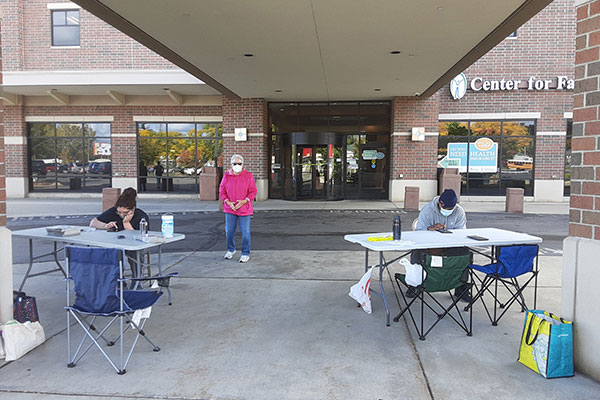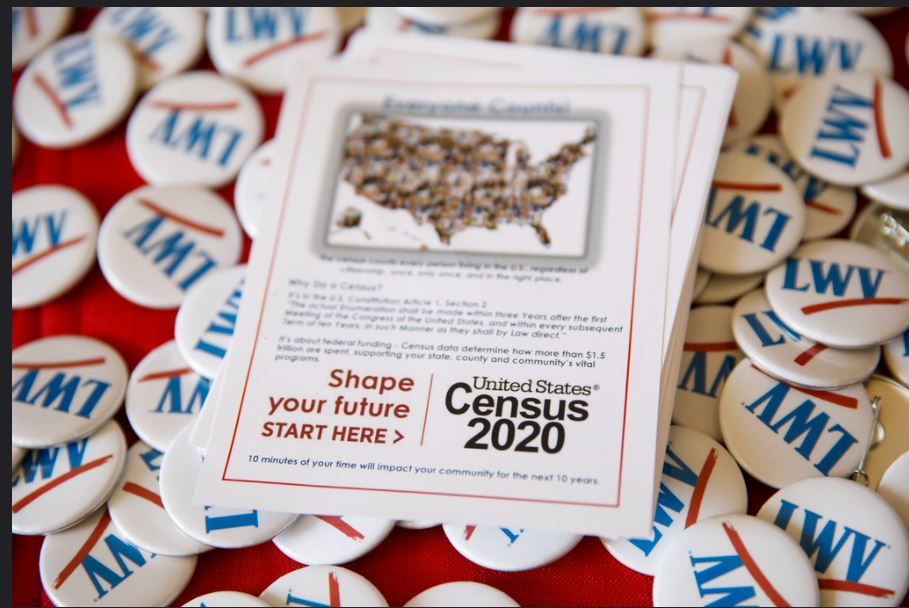The 2020 Census is over – but not its outcomes

Why it matters
The U.S. Census data is used to make decisions around education, healthcare, infrastructure, and political representation. With increased growth in the country, getting an accurate and complete count of every person living within the US is crucial to ensure that each state receives.
Redistricting
Based on this census report, new political lines are drawn for federal, state, county and some local districts to account for population shifts. The League of Women Voters of Michigan was instrumental in passing a constitutional amendment in 2018 that requires redistricting to be completed by an independent commission instead of the political party in power. Over 9,000 applications to be part of the Commission were received. Thirteen members were chosen at random and named to the Independent Citizen Redistricting Commission (ICRC) which had its first meeting September 17, 2020.
How Does The 2020 Census Affect Jackson?

Approximately $1,800 per year, per resident counted by the census, comes back to Jackson from the U.S. government for the next 10 years. That’s our tax dollars returning. For each resident counted that means:
1 resident counted X $1,800 a year X 10 years = $18,000 returns to Jackson
LWVJA Action
Over 16 LWVJA members were actively involved from July 2019 through October 2020 helping to promote the census and reach undercounted populations. We worked with over 15 local organizations including the Center for Family Health, the Salvation Army, Jackson City Council, local food pantries, the Personal Care Ministry, Sacred Heart Ministries, Lifeways and the Jackson Housing Commission. A report of our activities can be found at this link.
LWVJA was supported in our work when we received two grants to promote participation in the 2020 census. One was from the LWVME Education Fund (Making Democracy Work) and the other was from the Michigan Nonprofit Network (BeCountedMI2020). We implemented plans to host a town hall meeting and provide information, resources and support to local organizations working with traditionally undercounted populations in Jackson. At a minimum, 400 hours were volunteered and 6500 informational flyers distributed.
Census Data Are Being Used All Around You
Residents use the census to support community initiatives involving legislation, quality-of-life and consumer advocacy. Businesses use census data to decide where to build factories, offices and stores, which create jobs. Local governments use the census for public safety and emergency preparedness. Real estate developers use the census to build new homes and revitalize old neighborhoods. Click here for the latest updates from US Census Bureau.
Michigan Non Profit Network
Many nonprofit organizations statewide worked tirelessly to get every resident counted. This was the first year the census was primarily digitally based. As of November 2020, Michigan statewide efforts achieved the following outcomes:
- Michigan surpassed the national self-response rate by 5%
- Michigan increased the self-response rates from 2010 by 3%
- Jackson reported a self-response rate of 73%!!
- Jackson surpassed our self-response rates from 2010 by 4%
- Jackson surpassed the Michigan average self-response rates by 1.5%
- Jackson had three census tracts that surpassed a self – response rate of 80%
- Every census tract in Jackson County reported a self – response rate of more than 50%
